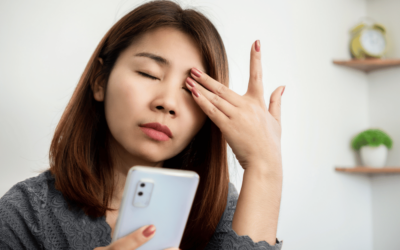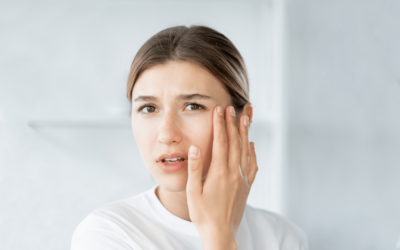Are your eyes constantly dry, gritty, or irritated, and you’re not sure why? You might think screen time, allergies, or the weather is to blame. But there’s another cause many people overlook: your medication.
Yes, certain medications can cause or worsen dry eye symptoms. Let’s explore why this happens and how to find relief.
Dry eyes from medication
Some medications reduce your body’s ability to produce tears or alter the composition of your tear film. Without a steady supply of healthy tears, your eyes can become dry, red, and uncomfortable. In more severe cases, dry eye can even interfere with your vision or cause long-term irritation.
Medications that cause dry eyes
Here are some types of medications that are commonly associated with dry eye symptoms:
- Antihistamines – Used to treat allergies, these medications can dry out your entire system, including your eyes and mouth.
- Decongestants – Helpful for stuffy noses but may reduce tear production.
- Antidepressants and anti-anxiety meds – Some of these medications affect your nervous system, which can impact tear production.
- Blood pressure medications – Beta-blockers and diuretics can decrease tear secretion.
- Hormone replacement therapy – Estrogen and progesterone imbalances can affect tear quality, especially in postmenopausal women
- Isotretinoin (Accutane) – Commonly prescribed for acne, this medication is known for causing dry eyes and other dryness-related side effects.
What you can do if your medication is causing dry eyes
If you suspect your medication might be contributing to dry eyes, you can try the following:
- Talk to your doctor or pharmacist. Never stop or change a medication without professional guidance. Your provider may be able to adjust your dosage or suggest an alternative.
- Use artificial tears. Over-the-counter lubricating eye drops can provide relief and keep your eyes comfortable throughout the day.
- Stay hydrated. Drinking plenty of water helps your whole body, including your eyes, stay moisturized.
- Add a humidifier. Using a humidifier can provide relief from dry eyes, especially during dry months or if you use central heating or air conditioning.
- Visit our eye doctor. We can assess your symptoms and recommend the best treatment plan, whether it’s prescription drops or dry eye therapies like intense pulsed light (IPL).
Don’t suffer in silence
Dry eye may seem like a small annoyance, but it can significantly impact your comfort and quality of life. If you’re taking medication and noticing symptoms like burning, itching, or blurry vision, don’t ignore it. Help is available, and you don’t have to give up your necessary medications to feel better.
At Lighthouse Vision, our dry eye specialist in Milford, Connecticut, can help you find relief with treatment options such as IPL therapy and RF treatment. Schedule an eye exam and let’s get to the root of the issue, so you can feel comfortable again.





